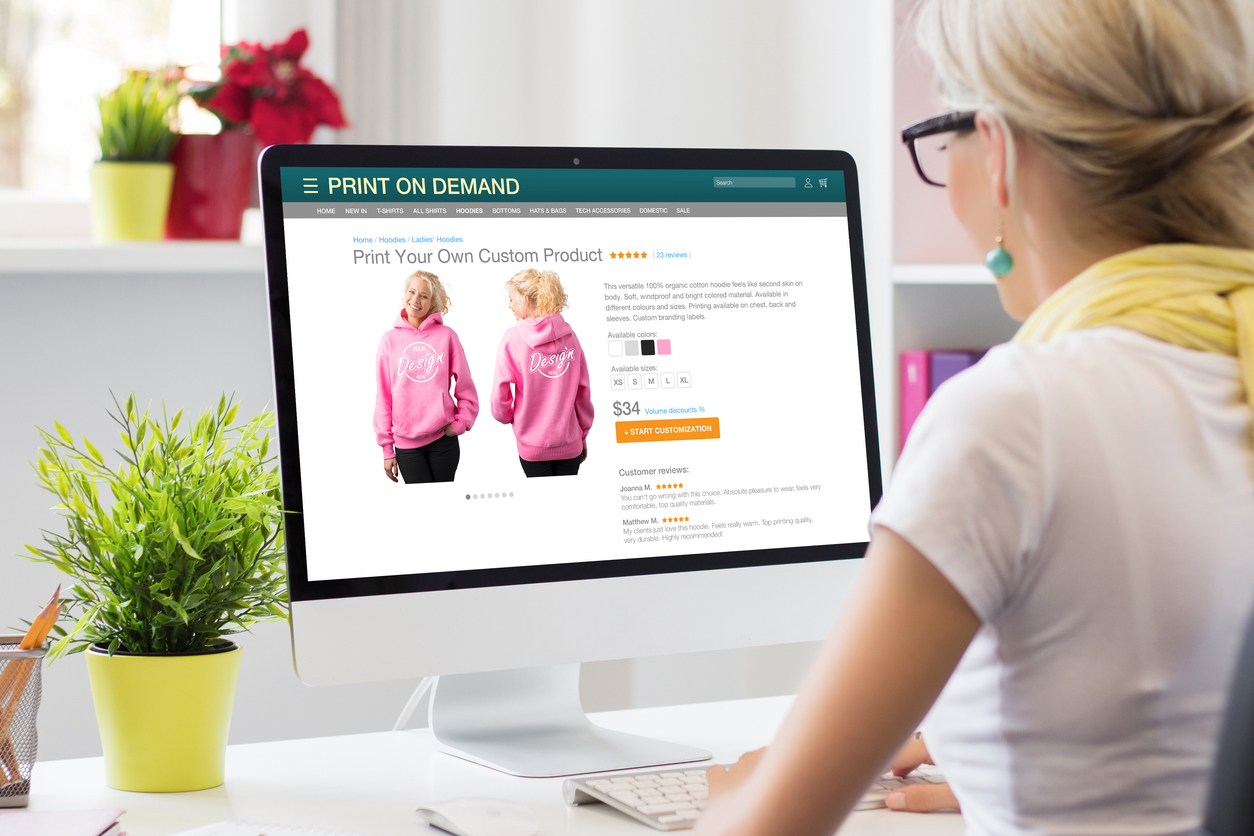For early-stage startups, every marketing dollar needs to work twice as hard. Most founders already juggle SEO, paid ads, and social campaigns — but one underrated growth lever is getting renewed attention: custom merchandise.
From branded T-shirts to hoodies and tote bags, startups are turning company swag into a real brand strategy. What used to be a post-launch afterthought has quietly become a tool for culture, visibility, and customer connection.
But why are fast-moving founders — especially those building lean teams — adding physical merch to their digital playbook?
Let’s break it down.
The Psychology Behind Startup Merch
People trust what they can see and touch. When someone wears your logo, it builds what digital impressions alone rarely can — tangible social proof.
A great T-shirt or hoodie becomes a walking endorsement. Employees wear it to events, friends post about it, and your logo lives beyond ad campaigns or email headers. That real-world exposure reinforces your startup’s identity, especially when your brand is still earning recognition.
For startups competing for attention, visibility isn’t just online — it’s everywhere.
The Branding Value You Can Measure
Merch turns brand presence into everyday familiarity. For example:
- Investors notice it. A well-branded team shirt at demo day makes a polished first impression.
- Employees value it. It strengthens internal culture and pride when done thoughtfully.
- Customers remember it. Practical, quality merch keeps your name top of mind long after the interaction.
Unlike digital ads, branded apparel keeps working — no expiration date, no algorithm changes. It’s passive marketing that builds a reputation with every wear.
Quality Merch Reflects Brand Quality
Here’s where many startups slip up — focusing on speed and quantity over substance. But the truth is, your merchandise says as much about your company as your actual product does. When someone feels the weight, texture, and fit of your T-shirt, they’re experiencing your brand’s values in real time.
That’s why founders are becoming more intentional about how their merch is made. Instead of chasing cheap, inconsistent batches, they’re turning toward reliable, design-conscious printing partners who understand brand identity from the ground up. This shift has led many teams to explore custom t-shirt printing for startups, like the solutions offered by Ninja Transfers. Their process focuses on high-quality blanks, consistent color matching, and durable prints that keep your logo looking sharp through every wear and wash.
For young brands, those small details make a big difference. Premium, well-printed merch doesn’t just promote your business — it communicates professionalism, trust, and long-term vision.
Why Founders See It as a Long-Term Investment
When early customers or team members wear your merch, it builds an emotional bridge. It’s one of the simplest forms of brand storytelling — and the ROI compounds over time.
Consider this:
- Every wearable item increases brand recall organically.
- Limited-edition drops or team-only apparel builds exclusivity and belonging.
- Event-specific designs turn networking into soft marketing opportunities.
Unlike digital campaigns that disappear when budgets run out, good merch stays in circulation. That long shelf life turns a one-time spend into sustained visibility — something no CPC campaign can replicate.
How Startups Use Merch Strategically
The smartest companies treat merchandise as part of their identity system — not just swag. Here’s how they’re doing it effectively:
- Launch kits for new hires – Branded shirts and notebooks help remote teams feel instantly connected.
- Customer loyalty drops – Sending merch to early adopters boosts retention and word-of-mouth.
- Event branding – Clean, consistent apparel reinforces presence at conferences or trade shows.
- Collaboration giveaways – Co-branded shirts with partners extend audience reach for both sides.
It’s less about selling shirts and more about selling a feeling — belonging to something that’s growing.
Digital Meets Physical: Extending Brand Touchpoints
In a startup’s early phase, every touchpoint counts. When someone receives or wears your merch, they experience your brand physically — not just visually. That sensory connection boosts recall far more than a banner ad ever could.
Paired with smart digital follow-ups (like QR codes linking to your story, launch page, or community invite), merchandise bridges the gap between awareness and engagement.
The result? A startup that feels cohesive online and offline — professional, memorable, and real.
Building Trust Through Tangible Branding
Early trust is currency for startups. And trust isn’t built only through websites or pitches — it’s earned through consistent signals. A well-designed T-shirt that fits right, feels right, and lasts communicates the same reliability you want customers to feel about your product.
That’s why branding leaders emphasize tactile branding — the idea that what someone touches reinforces what they believe about your company. The more authentic and intentional that experience feels, the faster your audience connects.
Final Thoughts
Custom merchandise isn’t a luxury for startups anymore — it’s a smart brand move. When done thoughtfully, it builds recognition, pride, and long-term connection that digital ads alone can’t achieve.
So the next time you’re budgeting for brand awareness, remember that a great shirt, hat, or hoodie isn’t just a gift — it’s a story people choose to wear.
And for startups chasing growth, that’s the kind of visibility you can’t buy — but you can create.














